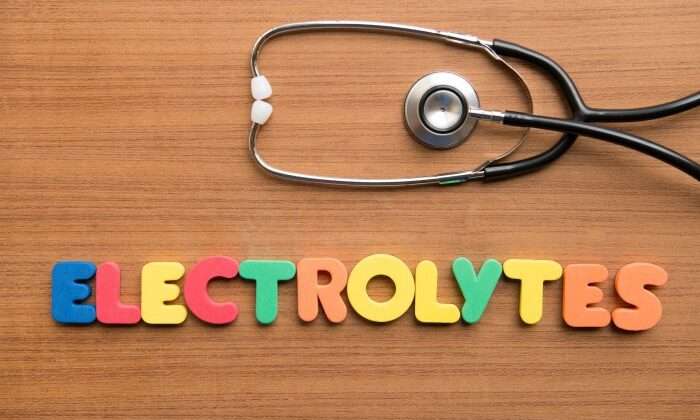Have you wondered what it means when the doctor orders lab tests? A Complete Metabolic Panel (CMP) is one of the most frequently ordered lab tests. The CMP is a panel of 14 blood tests which serves as an initial comprehensive medical screening tool. The CMP provides information on liver function, diabetic status, and parathyroid status. Electrolyte and fluid balance information are also provided.
MedlinePlus states that Electrolytes are minerals in your body that have an electric charge. They are in your blood, urine and body fluids. Maintaining the right balance of electrolytes helps your body’s blood chemistry, muscle action and other processes. Sodium, calcium, potassium, chlorine, phosphate, and magnesium are all electrolytes. You get them from the foods you eat and the fluids you drink.
Levels of electrolytes in your body can become too low or too high. That can happen when the amount of water in your body changes, causing dehydration or overhydration. Causes include some medicines, vomiting, diarrhea, sweating or kidney problems. Problems most often occur with levels of sodium, potassium or calcium.
Jay Harold will focus on your Potassium level, which is one of your electrolytes tested in the Complete Metabolic Panel. Potassium is a mineral that the body needs to work normally. It helps nerves and muscles communicate. It also helps move nutrients into cells and waste products out of cells. A diet rich in potassium helps to offset some of the sodium’s harmful effects on blood pressure. While the sodium/potassium pump mechanism is complex, you need to know why maintaining a normal potassium level is important.
Most people get all the potassium they need from what they eat and drink. Sources of potassium in your diet according to MedlinePlus include:
- Leafy greens, such as spinach and collards
- Fruit from vines, such as grapes and blackberries
- Root vegetables, such as carrots and potatoes
- Citrus fruits, such as oranges and grapefruit:
Potassium testing is frequently ordered, along with other electrolytes, as part of a routine physical. This test measures the amount of potassium in the fluid portion (serum) of the blood. The normal range of potassium is 3.7 to 5.2 mEq/L (Note: mEq/L = milliequivalent per liter). It is used to detect concentrations that are too high (hyperkalemia) or too low (hypokalemia).
The most common cause of hyperkalemia is kidney disease, but many drugs can decrease potassium excretion from the body and result in this condition. Hyperkalemia can be a medical emergency. Several treatments include giving calcium by the intravenous (IV) route, glucose, and insulin given IV, and kidney dialysis are available.
Hypokalemia can occur if someone has diarrhea and vomiting or has excessive sweating. Potassium can be lost through the kidneys in urine; in rare cases, potassium may be low because someone is not getting enough in their diet. If your hypokalemia is mild, your doctor will likely prescribe oral potassium pills. If your condition is severe, you may need to get potassium through a vein ( IV).
Today’s complex world of medical information can be overwhelming. This fact should not keep you from obtaining the information you need to live a healthy life. Jay Harold would like to thank my fellow pharmacist, Abiodun Ogundiran for his contributions to this post.
Play the free “Slow Roll Through Civil Rights” Game found on the Jay Harold website. Enjoyed this post? Share it and read more here.






